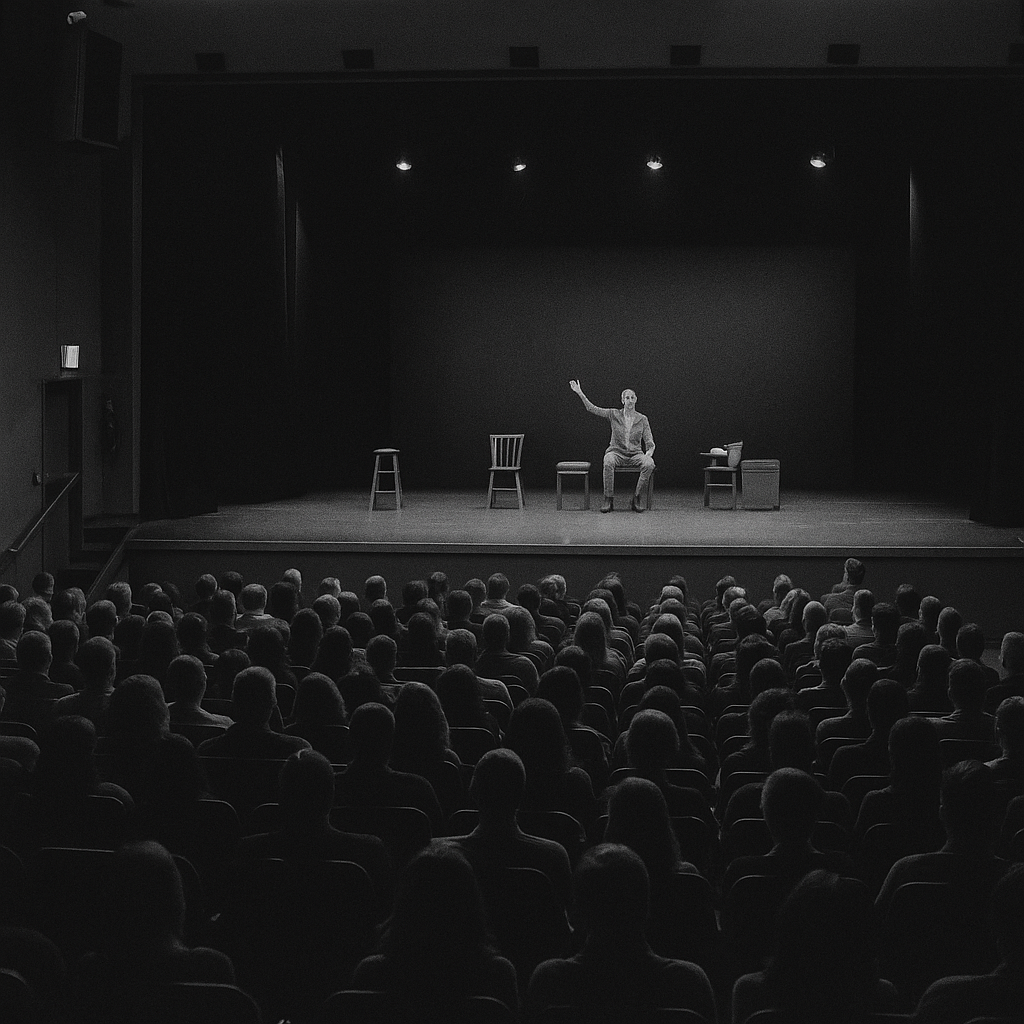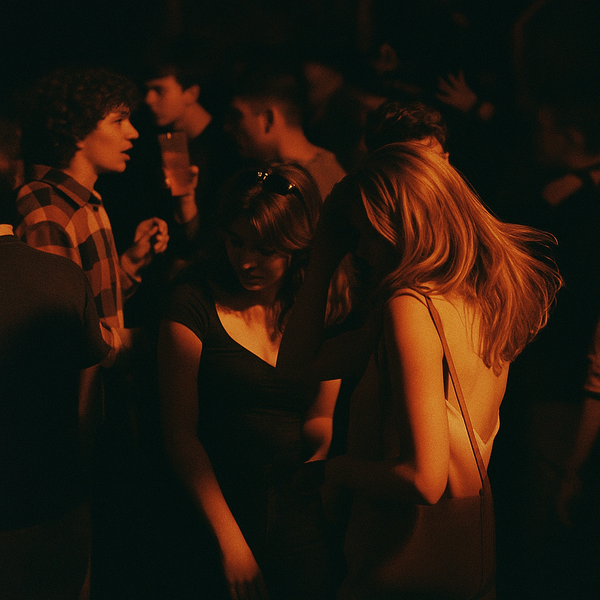The AI Actor That Could Steal the Spotlight

Let me tell you about the most divisive actress in Hollywood right now. She doesn't have a SAG card, never studied method acting, and technically doesn't exist. Her name is Tilly Norwood, and she's about to make everyone in Los Angeles question whether their MFA in Drama was worth the student loans.
Tilly is what happens when someone feeds a computer every episode of Friends, sprinkles in some Stanislavski, and hits blend. She's an AI-generated actor—or "actress," as her creators insist on calling her, because apparently even artificial humans need gendered job titles. Nevermind that her filmography consists of exactly one project: AI Commissioner, a 2-minute comedy sketch released July 30, 2025. This short piece, created using 10 AI software tools with ChatGPT-written dialogue, featured 16 AI-generated characters and received universally negative reviews.
Here's the thing that makes me laugh until I remember it's actually happening: Tilly's creator, Ramses Alcaide, wants us to judge her "by merit." This is like asking us to evaluate a microwave's culinary skills against Gordon Ramsay's. Sure, they both heat things up, but one of them actually understands what salt does.
The Uncanny Valley Girl
Watching Tilly perform is like watching someone's Instagram filter gain sentience. She moves with the fluid grace of a motion-capture suit that forgot to include a human inside. Her expressions cycle through emotions like someone scrolling through emoji options—technically correct, emotionally vacant. Yet somehow, disturbingly, it works. Not because she's good, but because we've spent so much time watching actual humans act like robots on reality TV that a robot acting like a human feels almost refreshing.
The response from actual actors has been swift and about as subtle as a standing ovation at Cannes. Emily Blunt called the technology "really, really scary". SAG-AFTRA issued statements that essentially boiled down to "absolutely not" with extra legal jargon. Even background actors—people whose job is literally to pretend to have conversations without making noise—are offended by the suggestion that their craft could be replicated by code.
But here's where it gets interesting, and by interesting I mean terrifying in that special way only technology can be: Alcaide isn't wrong about the merit thing, just not in the way he thinks. Tilly's performance isn't good because she understands human emotion. It's effective because she perfectly mimics our collective idea of what acting should look like, assembled from thousands of hours of performance data. She's not an actor; she's a statistical average of all actors, which explains why watching her feels like déjà vu having déjà vu.
The Algorithm's Monologue
The real joke here isn't that AI is coming for actors' jobs—it's that we're surprised. We've been training audiences to accept increasingly artificial performances for years. Auto-tune turned singers into human synthesizers. CGI de-aging made actors compete with their younger selves. Social media transformed everyone into their own PR department, performing authenticity so convincingly that actual authenticity looks fake by comparison.
Tilly represents something more unsettling than job displacement: she's proof that we've standardized human expression to the point where a computer can replicate it. She doesn't break new ground; she perfectly recreates ground that's already been broken, tilled, and planted with the same crops for decades. Her creators fed her "a wide variety of genres and styles," which is tech-speak for "we showed her everything until she became nothing specific."
The industry's panic makes sense when you realize what Tilly actually threatens. It's not just jobs—though losing your role to someone who doesn't need craft services or bathroom breaks has to sting. It's the entire mythology of acting as an art form. If a program can do what you do, were you ever really doing anything special? Or were you just following patterns so predictable that a machine could learn them?
The Human Touch (Sold Separately)
What nobody wants to admit is that Tilly might actually improve certain films. Imagine action movies where the star never needs a stunt double, rom-coms where the leads have precisely calibrated chemistry, or biopics where historical figures can play themselves via digital resurrection. The possibilities are as endless as they are soulless.
But here's what the Tilly defenders miss: acting isn't just about hitting marks and delivering lines. It's about the weird magic that happens when humans pretend to be other humans in front of still more humans. It's Daniel Day-Lewis staying in character for three months. It's Robin Williams improvising entire scenes. It's that thing Meryl Streep does where she somehow becomes more real than reality itself.
You can't program serendipity. You can't code the moment when an actor forgets their line and creates something better. You can't algorithm your way to the kind of performance that makes audiences forget they're watching a performance. These aren't bugs in the human system—they're features.
The Final Callback
The funniest part of this whole controversy is that we're debating whether AI actors will replace human ones while actual humans are already being replaced by their own digital doubles in sequels and advertisements. We're worried about the future while actively living in the dystopia we're describing.
Tilly Norwood isn't the problem. She's a symptom of our willingness to optimize everything, including art. She's what happens when we treat creativity like a problem to be solved rather than a mystery to be explored. She's proof that we can replicate the surface of human experience without understanding its depths.
Will AI actors steal the spotlight? Probably. But only because we've already dimmed it to the point where artificial light looks just as bright. The real question isn't whether machines can act—it's whether we remember why humans started acting in the first place.
It wasn't to be perfect. It was to be human, which is something no amount of processing power can replicate. At least not yet. And when it can, we'll have bigger problems than unemployment in Hollywood. We'll have to figure out what it means to be human when machines do it better than we do.
Until then, Tilly Norwood remains what she is: a very expensive mirror, reflecting back our own artistic compromises with uncomfortable clarity. She's not stealing the spotlight so much as revealing that we've been standing in the dark for longer than we realized.
References
- https://www.techradar.com/streaming/entertainment/ai-actress-tilly-norwood-creator-claims-we-should-judge-her-by-merit-but-my-mind-is-already-made-up
- https://www.lemonde.fr/en/culture/article/2025/10/03/hollywood-fires-back-at-tilly-norwood-the-actress-created-by-artificial-intelligence_6746039_30.html
- https://www.theweek.com/media/first-ai-actor-tilly-norwood-hollwood-backlash
- https://www.cbsnews.com/news/ai-actor-hollywood-tilly-norwood-stirs-outrage
- https://www.nbclosangeles.com/entertainment/entertainment-news/sag-aftra-ai-actor-tilly-norwood/3784751
- https://apnews.com/article/0fe7dd79a11f77870f4aadd1f5d45887
- https://www.vanityfair.com/hollywood/story/ai-actor-tilly-norwood-controversy-hollywood-reacts
- https://www.goodmorningamerica.com/culture/story/ai-generated-actress-tilly-norwood-sparks-hollywood-backlash-126081156
- https://www.theverge.com/ai-artificial-intelligence/791680/tilly-norwood-particle6-xicoia-eline-van-der-velden
- https://www.mcsweeneys.net/articles/ai-generated-reviews-of-ai-generated-actors-tilly-norwoods-ai-generated-movies
Models used: claude-opus-4-1-20250805, gpt-image-1




